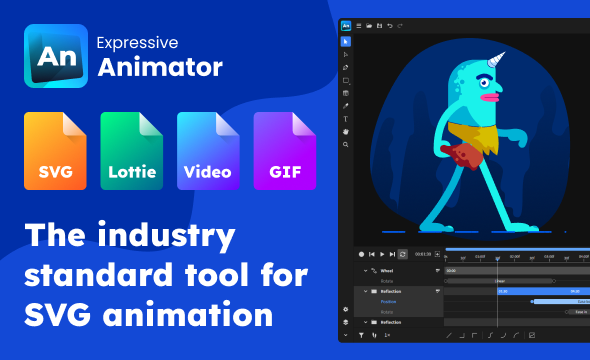Schema loader
Loader object
The loader is used to produce a validatable schema by parsing the contents of a resolved schema.
A schema is parsed only once, and the result is cached.
So, why do we have to parse the schema contents? This is because different drafts contain different keywords, or the same keyword behaves differently in two distinct drafts. We also need to find all id’s inside a schema, to quickly resolve a reference the next time is needed.
use Opis\JsonSchema\{
Validator,
SchemaLoader,
};
// Option 1. - Get the loader from the validator
$validator = new Validator();
$loader = $validator->loader();
// Option 2. - Create the loader
$loader= new SchemaLoader();
// Validator constructor accepts a loader as argument
$validator = new Validator($loader);
// Or you can set the loader
$validator->setLoader($loader);
Resolver
Is used to resolve the contents of a schema by uri.
use Opis\JsonSchema\Validator;
$validator = new Validator();
// Get the resolver from schema loader
$resolver = $validator->loader()->resolver();
// Or, get it using the shortcut
$resolver = $validator->resolver();
registerRaw method
public function registerRaw(
string|object|bool $schema,
?string $id = null
): bool
Use this method to register an inline raw schema. You can optionally set the id.
$resolver->registerRaw((object)['type' => 'object']);
$resolver->registerRaw('{"type": "object"}', 'http://example.com/object.json');
registerFile method
public function registerFile(string $id, string $file): self
Use this method to register a file as a schema. You must specify the id.
$resolver->registerFile('http://example.com/schema.json', '/path/to/file.json');
registerPrefix method
public function registerPrefix(string $prefix, string $dir): self
Use this method to register a filesystem directory from where to load schema files. You must specify the id prefix.
$resolver->registerPrefix('http://example.com/','/path/to/dir');
In the above example we create a loader that maps
the /path/to/dir directory to http://example.com/ prefix.
Given that our dir contains
[user]
create.json
update.json
[resume]
[hobby]
item.json
create.json
update.json
the following documents should be available, and should contain the contents of corresponding files
- http://example.com/user/create.json
- http://example.com/user/update.json
- http://example.com/resume/create.json
- http://example.com/resume/update.json
- http://example.com/resume/hobby/item.json
registerProtocol method
public function registerProtocol(string $scheme, callable $handler): self
Use this method to register a custom protocol handler.
use Opis\JsonSchema\Uri;
$resolver->registerProtocol('my-proto', function (Uri $uri) {
// ...
});
The above example will handle all uris that have the my-proto scheme,
such as my-proto://example.com, my-proto://other.com/path/to/file.json …
registerProtocolDir method
public function registerProtocolDir(
string $scheme,
string $host,
?string $dir
): self
This method is similar to registerPrefix.
$resolver->registerProtocolDir('http', 'example.com', '/path/to/dir');
The files resolved from /path/to/dir will be prefixed with http://example.com/.
Parser
Holds all registered drafts and keyword parsers. Used to create a validatable schema object from a source.
Also, contains different resolvers: filters, formats, media types, content encodings.
use Opis\JsonSchema\Validator;
use Opis\JsonSchema\Resolvers\{
FilterResolver,
FormatResolver,
ContentEncodingResolver,
ContentMediaTypeResolver,
};
$validator = new Validator();
// Get the parser from schema loader
$parser = $validator->loader()->parser();
// Or, by using the shortcut
$parser = $validator->parser();
// Accessing the resolvers...
/** @var FilterResolver $filter_resolver */
$filter_resolver = $parser->getFilterResolver();
/** @var FormatResolver $format_resolver */
$format_resolver = $parser->getFormatResolver();
/** @var ContentEncodingResolver $encoding_resolver */
$encoding_resolver = $parser->getContentEncodingResolver();
/** @var ContentMediaTypeResolver $media_resolver */
$media_resolver = $parser->getMediaTypeResolver();
Parser options
use Opis\JsonSchema\Validator;
$validator = new Validator();
// set an option
$validator->parser()->setOption($name, $value);
If you ever want to use only the features of json-schema (without the useful additions like filters or uri-templates), just use the settings from the “Vanilla” column.
| Option | Default | Vanilla | Description |
|---|---|---|---|
| defaultDraft | "2020-12" |
"2020-12" |
Sets the default draft to use when $schema keyword is missing |
| decodeContent | ["06", "07"] |
["06", "07"] |
The draft versions where content related keywords are allowed: contentEncoding, contentMediaType, contentSchema. Use true to allow regardless of draft version. |
| allowFilters | true |
false |
Enables/disables $filters keyword |
| allowFormats | true |
true |
Enables/disables format keyword |
| allowMappers | true |
false |
Enables/disables $map keyword |
| allowTemplates | true |
false |
Enables/disables URI templates |
| allowGlobals | true |
false |
Enables/disables $globals keyword |
| allowDefaults | true |
false |
Enables/disables default keyword |
| allowSlots | true |
false |
Enables/disables $slots keyword |
| allowPragmas | true |
false |
Enables/disables $pragma keyword |
| allowDataKeyword | true |
false |
Enables/disables $data keyword |
| allowUnevaluated | true |
true |
Enables/disables unevaluatedProperties keyword and unevaluatedItems keyword |
| allowKeywordsAlongsideRef | false |
false |
If set to true then siblings of $ref keyword are evaluated in draft-06 and draft-07. In other drafts this is enabled by default. |
| allowRelativeJsonPointerInRef | true |
false |
If set to true then $ref keyword will use relative pointers if the value represents a relative pointer. In rare cases, this can collide with paths. (Since v2.1.0). |
| allowExclusiveMinMaxAsBool | true |
false |
If set to true then exclusiveMinimum keyword and exclusiveMaximum keyword will allow booleans as value. (Since v2.1.0). |
| keepDependenciesKeyword | true |
false |
If set to true then dependencies keyword will be available for draft-2019-09 and draft-2020-12. (Since v2.1.0). |
| keepAdditionalItemsKeyword | true |
false |
If set to true then additionalItems keyword will be available for draft-2020-12. (Since v2.1.0). |

